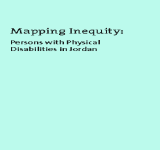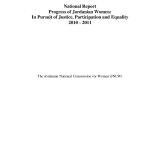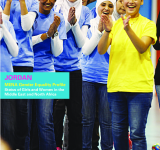This report adopts a rights-based approach to map the access of persons with physical disabilities to social services in Jordan and assess the extent to which they enjoy equal opportunities and are socially integrated. The rights-based approach calls for a thorough assessment of the “4 A’s”;; i.e. the availability;; accessibility;; adaptability and acceptability of social services for all members of society. It thus puts special emphasis on the environmental factors and policy gaps constraining the “4 A’s” and preventing the social integration of vulnerable groups. Accordingly;; the objectives of this study are (a) to set forth the social;; legal and institutional barriers preventing persons with physical disabilities in Jordan from fully enjoying their right to education;; health;; employment and social protection and (b) to gauge the ability of social policies to lift these barriers and facilitate the overcoming of inequity for this group.


